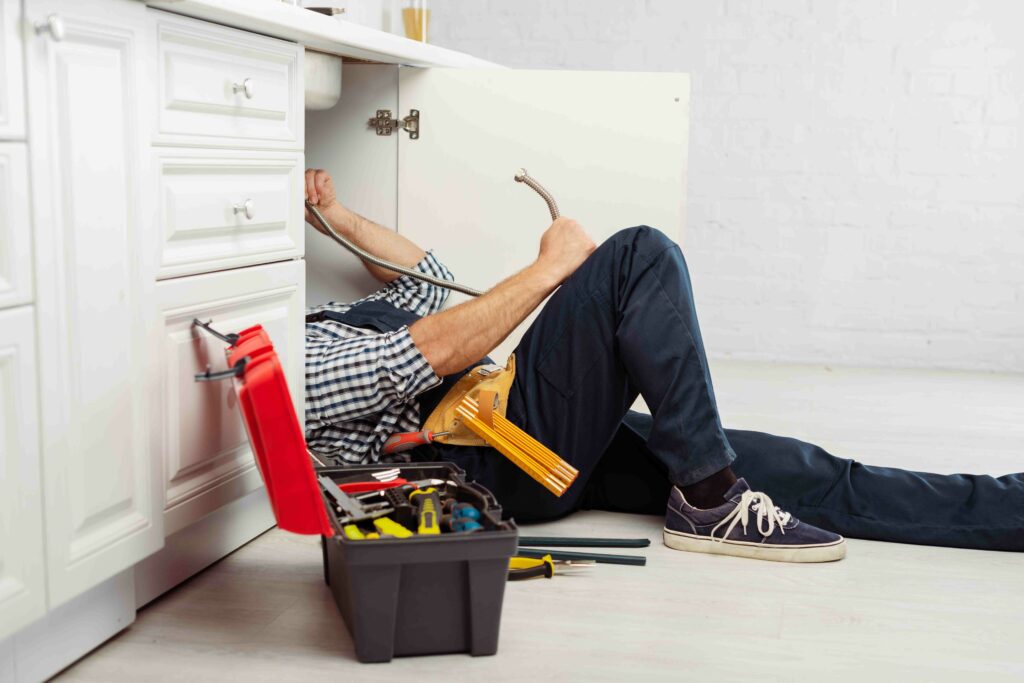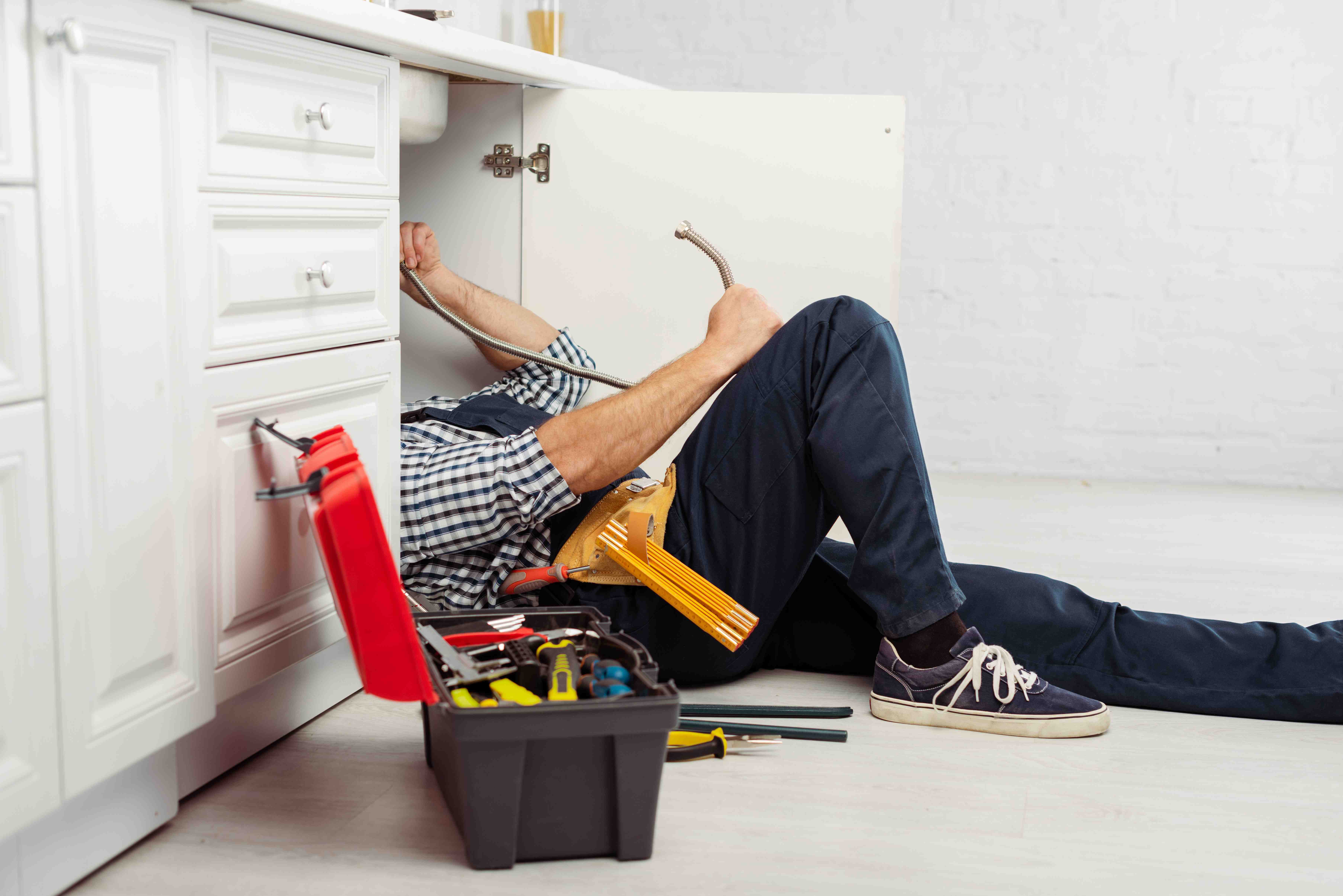

Knowing What Not to Fix When Selling Your House: A Smart Move
When it comes to what not to fix when selling a house, making informed decisions is key. Instead of diving into costly repairs, focus on saving money and boosting your return on investment (ROI). Here are some things you should not worry about fixing:
- Old but working appliances: New appliances are expensive and specific to personal taste.
- Outdated wallpaper: Removing or replacing can be costly and time-consuming.
- Outdoor hot tubs or cold plunges: Unlikely to add value and may deter some buyers.
- Home technology systems: Buyers prefer to install their own or take existing setups with them.
Before you start fixing up your home, consider the importance of knowing where to save. Over-improving can lead to losses. By consulting a real estate professional, you can make smart choices that attract buyers without wasting money.
I’m Scott Beloian, a seasoned real estate professional and Broker/Owner of Westcoe Realtors. With an in-depth understanding of our local market, I help sellers identify what not to fix when selling a house, ensuring you save money and get the best possible offers.

Why You Shouldn’t Fix Everything When Selling a House
When it comes to selling your home, it’s tempting to fix every little flaw to make it perfect. But here’s the truth: you don’t need to fix everything. Focusing on the right repairs can save you time, money, and stress, while maximizing your return on investment (ROI). Let’s explore why this is the case.
Emotional Buyers and Visual Impact
Buyers often make decisions based on emotion and visual appeal. Imagine walking into a home with a beautifully upgraded kitchen, shiny hardwood floors, and freshly painted walls. These features create a strong first impression and can sway a buyer’s decision.
However, not every fix has the same visual impact. Small cosmetic flaws like minor dings or scuffs on walls are usually overlooked by buyers who are more focused on the overall feel of the home.
Cost vs. Benefit
Before you grab your toolbox, consider the cost vs. benefit of each repair. Major renovations like a full kitchen or bathroom remodel can be incredibly expensive. According to a Remodeling by JLC report, a midrange kitchen remodel only recoups about 49.5% of its cost.
Instead of spending thousands on a new kitchen, you might be better off making smaller, cost-effective changes that improve the home’s appearance, like a fresh coat of paint or new light fixtures.
Return on Investment (ROI)
Savvy sellers know that not all repairs yield a high ROI. For example, installing new, expensive appliances is often not worth it. If your current appliances are functional, it’s better to leave them as-is. Buyers might prefer to choose their own appliances to fit their taste and needs.
Similarly, adding high-tech home systems or luxury features like hot tubs rarely recoup their costs. Most buyers are more interested in the basics being in good working order.
The goal is to make your home appealing without pouring money into low-ROI projects. Focus on areas that will make the most impact visually and emotionally for buyers. Consult with a real estate professional to get custom advice for your home and market conditions.
What Not to Fix When Selling a House
When selling your house, knowing what not to fix can save you time and money. Here’s a breakdown of the key areas where you might want to hold back on repairs.
Major Renovations
Kitchen and Bathroom Remodels
While a brand-new kitchen or bathroom sounds appealing, major renovations can be very costly and might not give you a good return on investment (ROI). According to a Remodeling by JLC report, a midrange kitchen remodel only recoups about 49.5% of its cost.
Instead of a full remodel, focus on smaller updates that improve the appearance:
- Paint: Fresh, neutral colors can make a big difference.
- Fixtures: Replacing outdated fixtures is a cost-effective way to modernize the space.
Old Appliances
Working Condition
If your old appliances still work well, there’s no need to replace them. New appliances can be expensive, and you might not get your money back when you sell.
Appliance Allowance
Consider offering an appliance allowance to the buyer. This way, they can choose their own replacements, which can be a big selling point.
Minor Electrical Issues
Malfunctioning Light Switches and Non-working Outlets
Minor electrical problems like a broken light switch or a non-working outlet can usually be negotiated with the buyer. These are often small fixes that buyers prefer to handle themselves.
Small Cosmetic Flaws
Dings, Scuffs, and Nail Holes
Minor cosmetic issues like dings, scuffs, or nail holes in the walls are usually overlooked by buyers. They are more concerned with the overall condition of the home.
Buyer Overlook
Focus on presenting a clean and well-maintained property. Buyers are likely to overlook these small flaws if the rest of the house is in good shape.
Windows
Energy Efficiency and Cleaning
Replacing windows is expensive and often doesn’t provide a high ROI. Instead, make sure your windows are clean and well-maintained. This can improve your home’s overall appeal without the high cost of replacement.
Driveway Cracks
Major Driveway Cracks
Large cracks in your driveway may not significantly impact your property’s value. Buyers are usually more concerned with the condition of the house itself. Minor cracks can be filled, but major repairs are often not worth the expense.
Knowing what not to fix when selling a house can help you save money and focus on the repairs that matter most. Next, we’ll explore the factors to consider before making any repairs, including consulting a realtor, assessing costs, and understanding your local market. Stay tuned to learn how to make smart, strategic decisions when preparing your home for sale.
Factors to Consider Before Making Repairs
Consulting a Realtor
Before diving into repairs, consult a local realtor. Realtors have their fingers on the pulse of the market. They know what buyers in your area are looking for and can offer strategic advice on which repairs will give you the best return on investment (ROI).
Cost Assessment
Assessing costs is crucial. You need to compare the costs of repairs against the potential increase in home value. Some upgrades might seem essential but could end up costing more than they add in value.
- Budgeting: Create a detailed budget for any planned repairs.
- Comparing Costs vs. Value Increase: Calculate the potential ROI for each repair.
- Unexpected Expenses: Always set aside a contingency fund for unexpected costs.

Timeline
Your timeline is another important factor. If you’re in a hurry to sell, major renovations might not be practical. Instead, focus on quick fixes that can make your home more appealing without delaying your sale.
- Urgency: How soon do you need to sell?
- Practicality: Can the repairs be completed in time?
- Competitive Pricing: Sometimes, pricing your home competitively and selling it as-is can be a better strategy.
Local Market Research
Understanding your local market can guide your repair decisions. Research recent sales in your area to see what condition homes were in when they sold.
- Recent Sales: Look at the condition of homes that have recently sold.
- Neighborhood Trends: Are buyers in your area looking for move-in-ready homes or fixer-uppers?
- Market Conditions: Is it a buyer’s or seller’s market?
Deal-Breakers
Some issues are non-negotiable. Structural problems, water damage, and safety hazards are deal-breakers for most buyers and should be addressed.
- Structural Problems: Cracks in the foundation or walls need fixing.
- Water Damage: Address any signs of leaks or past water damage.
- Safety Hazards: Ensure electrical systems and other safety features are up to code.

Next, we’ll discuss what you should fix before selling your house, including painting, updating light fixtures, and enhancing curb appeal. Stay tuned to learn how to make your home more attractive to buyers.
Things to Fix Before Selling Your House
Painting
A fresh coat of paint can work wonders when it comes to selling your house. Julie Upton, a Realtor with Compass, emphasizes that you shouldn’t even list your home without repainting the interiors first.
- Neutral Colors: Stick to neutral, modern colors like white or light gray. These shades make spaces look bigger and allow potential buyers to envision their own furniture and decorations.
- Chipped Paint: Address any chipped or peeling paint. It’s a simple fix that can make your home look well-maintained.
- Outdated Colors: If you have bold or outdated colors, repainting can make your home more appealing to a broader audience.
Light Fixtures
Upgrading light fixtures is another cost-effective way to improve your home’s appeal.
- Updating: Replace old or worn-out fixtures with contemporary options. This small change can make rooms look more modern and inviting.
- Aesthetics: Choose fixtures that complement the overall style of your home. Avoid overly trendy options that might not appeal to everyone.
- Better Lighting: Ensure your home is well-lit. Good lighting can make rooms feel larger and more welcoming.
Curb Appeal
First impressions matter. Enhancing your home’s curb appeal can attract more potential buyers.
- Lawn Maintenance: Keep your lawn mowed and free of weeds. A well-maintained lawn signals that the home is cared for.
- Landscaping: Trim shrubs and trees, plant flowers, or add potted plants to make the exterior more inviting.
- Exterior Elements: Repair or replace any damaged elements like the front door, mailbox, or house numbers. A fresh coat of paint on the front door can also add a welcoming touch.
Minor Repairs
Small fixes can make a big difference in how buyers perceive your home.
- Leaky Faucets: Fix any leaks to show that your home is well-maintained.
- Loose Door Handles: Tighten or replace door handles to avoid giving the impression that there are bigger, hidden problems.
- Squeaky Hinges: Oil squeaky hinges to eliminate any off-putting noises during showings.
By focusing on these key areas, you can make your home more appealing to buyers without overspending.
Frequently Asked Questions about What Not to Fix When Selling a House
Should I empty my house before selling?
Not necessarily. While it’s important to declutter, you don’t need to empty your house entirely. Decluttering helps buyers imagine themselves in the space. Remove personal items and excess furniture to create an open, inviting atmosphere.
Personal Items: Store away family photos, personal collections, and anything overly specific to your taste. Buyers need to envision their own belongings in the space.
Buyer Visualization: A clean, decluttered home allows buyers to focus on the house itself, not your stuff. This can make your home feel larger and more appealing.
Do I need to fix every minor issue in my house?
No, not every minor issue needs fixing. Focus on critical issues that affect safety and functionality. Small cosmetic flaws can often be overlooked by buyers or negotiated during the sale.
Critical Issues: Address significant problems like structural damage, water leaks, or faulty wiring. These can be deal-breakers for buyers and may come up during a home inspection.
Safety and Functionality: Ensure that everything in your home is safe and functional. Fix leaky faucets, loose door handles, and squeaky hinges. These small repairs can make a big difference in how buyers perceive your home.
Is it worth renovating my entire kitchen before selling?
Usually, no. High costs and buyer preferences make full kitchen remodels risky. Instead, focus on smaller updates that offer a better return on investment.
High Costs: Major kitchen renovations can be expensive and time-consuming. According to the National Association of Realtors, these projects often recoup less than 60% of their costs.
Buyer Preference: Buyers often prefer to customize major spaces like kitchens themselves. Offering a kitchen allowance can be a more appealing option.
Full Remodel vs. As-Is: If your kitchen is outdated but functional, consider selling as-is. Small updates like new paint, updated hardware, or modern light fixtures can make a big impact without the high cost of a full remodel.
By focusing on these key areas, you can make informed decisions about what not to fix when selling a house, saving time and money while still making your home attractive to buyers.
Conclusion
Selling a house can be a complex process, but knowing what not to fix when selling a house can save you time, money, and stress. By focusing on strategic repairs and avoiding unnecessary renovations, you can maximize your return on investment and attract more buyers.
Strategic Repairs
Instead of pouring money into major renovations, concentrate on smaller, impactful updates. Fresh paint, updated light fixtures, and minor repairs can make a big difference in how your home is perceived. Buyers often prefer to customize major spaces like kitchens and bathrooms themselves.
Westcoe Realtors
At Westcoe Realtors, we understand the local market and can provide personalized, strategic advice to help you steer the home-selling process. With over 60 years of experience in Riverside, we offer the expertise and human-centered service you need to make informed decisions.
Personalized Service
Every home is unique, and so are your selling needs. We take the time to understand your goals and provide custom recommendations to ensure a successful sale. Whether it’s deciding which repairs to make or how to stage your home, we’re here to guide you every step of the way.
Local Expertise
Our deep knowledge of the Riverside market allows us to offer insights that can significantly impact your sale. We know what buyers are looking for and can help you prioritize the right updates to make your home stand out.
Ready to sell your home? Find the Westcoe Realtors difference and let us help you make your real estate dreams a reality.
By focusing on strategic repairs and leveraging expert advice from Westcoe Realtors, you can sell your home quickly and for the best possible price.






